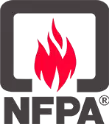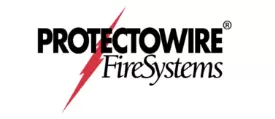New England Commercial Backflow Preventer Services
In most business settings, sprinkler systems are a fundamental firefighting tool. To prevent this toxic water from flowing backward and entering the municipal water supply, you might need to install a commercial backflow preventer to remain code-compliant. Not only that, but the NFPA requires backflow preventer testing annually.
Fire Protection Team is experienced with backflow prevention. Whether you need a system installed, inspected, tested or repaired, we’re the right company for the job. We have decades in business in the fire safety industry, so you know we have the right team, equipment and know-how to do the work.
Backflow Preventer Inspections & Testing
As with all mechanical devices, backflow preventers can malfunction. To help prevent this from happening, count on FPT for routine inspections and testing for your backflow preventer. Our expert staff stays up to date with the latest code changes so you don’t have to.
We make sure the following points are true at the completion of a backflow preventer inspection and test:
- All backflow devices are working properly.
- There are no site conditions that could compromise the performance of the backflow prevention system.
- The control valves are accessible and in good condition.
- The equipment passes the annual performance differential test in accordance with NFPA 25.
- The customer is familiar with how the equipment operates.
- All devices are tagged and records are updated as required.
After each inspection, we provide you with a detailed written report of our findings, complete with recommendations to repair or modify your backflow preventer, if necessary. You can access this information on our convenient Customer Portal.
Backflow Preventer Installation in New England
Protect Your Water Supply with Professional Backflow Prevention
Backflow preventers are essential safeguards that keep non-potable water, pollutants, and harmful substances from contaminating your building’s drinking water supply. Whether it’s chemicals from fire sprinklers or contaminants like pesticides and fertilizers, backflow poses serious health risks if it enters potable water systems. If your commercial property requires a new installation or replacement, Fire Protection Team is here to provide expert backflow preventer solutions tailored to your needs.
Why Your Facility Needs Backflow Prevention
Backflow issues often arise from external forces beyond your control, making prevention critical. Contaminants like hazardous materials, feces, or fertilizers can compromise water safety, putting occupants’ health at risk. Most commercial facilities are required to install backflow preventers to comply with state and local regulations. Our team will assess your building’s water systems to identify where backflow devices are needed and ensure proper placement and compliance.
Backflow Repairs in New England
Backflow issues in your commercial facility can lead to water contamination, posing risks to health and safety. Often, these problems go unnoticed until they escalate, making timely repair critical. At Fire Protection Team (FPT), we provide expert backflow repair services throughout New England. Equipped with advanced tools and industry expertise, our team ensures that your backflow prevention system is restored efficiently and effectively, regardless of the size or complexity of your property.
Signs of Backflow Problems
Stay vigilant for these warning signs that may indicate a backflow issue:
- Poor Water Quality: Discoloration, foul taste, or bad odor in your water supply.
- Health Concerns: Illness outbreaks can reveal undetected backflow contamination.
- Water Pressure Fluctuations: Sudden drops or irregularities in pressure may signal a problem.
- Random Sampling Results: Frequent testing might uncover bacterial or chemical contaminants caused by backflow.
Comprehensive Backflow Repair Services
If you suspect contamination or notice signs of backflow, contact us immediately. Our skilled team will:
- Inspect your water supply and backflow preventers.
- Diagnose the issue and present repair options.
- Complete timely repairs to restore safe water flow.
Minimizing Disruptions to Your Business
Backflow problems can disrupt daily operations, but our team prioritizes minimizing downtime and maintaining water access during repairs. Whether caused by pressure changes, line breaks, or accidental system malfunctions, we’ll resolve the issue promptly to keep your business running smoothly.
How Backflow Can Occur
Backflow can happen in one of two ways:
- Pressure - Back-pressure can induce the water pressure in a plumbing system to exceed that of the water distribution system, causing the water to reverse flow. Elevated tanks, chemical feed pumps, recirculating systems or boilers can have backflow problems.
- Back-Siphonage - Negative pressure in the water system can cause back-siphonage, with the drop in water pressure drawing the water backward through the water system. This may be due to a leak in the water mains, or a high withdrawal rate of water, such as during fire fighting.
Backflow Preventer FAQS
The type of backflow preventer needed and the complexity of the installation are two variables that can affect how much it will cost to install a backflow preventer. A few hundred dollars to several thousand dollars may be spent. To get a precise estimate for your situation, it is best to speak with a certified plumber or backflow prevention specialist. To make sure the backflow preventer is functioning correctly and continues to be in compliance with local regulations, there may be additional costs for annual testing and maintenance in addition to the installation fee. However, by preventing contaminated water from entering your home or business, purchasing a backflow preventer may save you money in the long run.
A licensed plumber or a backflow prevention specialist can install a backflow preventer. It's important to ensure that the installer is certified and has experience with the specific type of backflow preventer required for your property.
The lifespan of a backflow device can vary depending on the type of device, the manufacturer, and the quality of installation and maintenance. Generally, a well-maintained backflow preventer can last anywhere from 5 to 25 years. It's important to have regular testing and maintenance performed by a licensed professional to ensure the backflow preventer is functioning properly and to identify any potential issues before they become major problems. Ultimately, the lifespan of a backflow preventer will depend on several factors and can be extended with proper care and maintenance.













